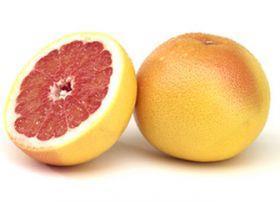
South Africa’s grapefruit growers are gearing themselves up to launch a major promotion in Japan and the UK next year to consolidate their position in these markets.
Growers voted by a large majority in favour of the campaign in a referendum recently run by the country’s Citrus Growers’ Association (CGA).
Around 80 per cent of the campaign will be focused on Japan, according to Justin Chadwick, CEO of the CGA.
He says in the UK the grapefruit campaign would become part of a wider deciduous and table grape campaign, while the Japanese campaign still needs to be developed.
“The 2010 World Cup will mean a lot of coverage for South Africa in international media, which is the ideal opportunity to promote fruit from South Africa. In Japan, 2010 also marks 100 years of diplomatic relations, which will result in a lot of coverage in Japanese media,” he explained.
Research and industry discussion on stimulation of Japanese grapefruit demand has been ongoing for the past four years, and Mr Chadwick told Fruitnet.com understanding of the market is now much greater.
“Nevertheless, it is a bold step to take and one that will be watched with interest,” he said.
“In 2009 the weekly sales rates lagged behind the five year average by 15-20 per cent during most weeks. Many will argue that this is due to the economic conditions prevailing at present, but others will show that those who spent money promoting their products during these difficult times actually experienced acceptable sales rates.”
Japanese consumer spending on fruit has experienced a significant drop in the last 12 months; spending per household was just ¥2,822 (US$31.90) in October this year, compared to ¥3,230 (US$36.50) last year, according to Jack Moriya of Tokyo Seika.
Low citrus demand on the Japanese market is also causing headaches for the country’s domestic producers.
Two weeks ago many Japanese mandarin growers stopped deliveries to wholesale markets out of protest over low prices, Hiroaki ‘Don’ Okazoe of importer-exporter IPM Nishimoto told Fruitnet.com.
“Supplies were 50 per cent less than the previous week, but even with the lower volumes, prices didn’t go up,” he said. “Japan is struggling a lot with consumption. I really wonder how the growers can survive on those prices.”
Supplies of Japanese mandarins have peaked sharply this November-December, and are expected to drop rapidly in the new year.






No comments yet